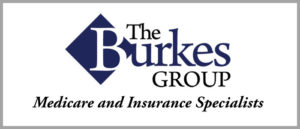Medicare Advantage (MA) or Part C offers coverage that matches Original Medicare with added benifits. It is part of the Medicare program offered to disabled adults and senior citizens who qualify. Private insurance firms offer Medicare Advantage. This plan usually includes the medical coverage Part A, B, and D that Medicare offers.
How Does Medicare Advantage Work?
Medicare Advantage is considered a great alternative to Original Medicare because it covers all the costs incurred under Original Medicare. There are certain MA plans that cover extra costs not paid for by Medicare, including hearing, dental, and vision expenses. However, MA plans don’t work with Medicare Supplement and Medigap Insurance.
In 2020, the average premium for a MA plan is expected to be around $23. Private insurance firms receive a set amount of money every month for MA plan care. The insurance companies, in turn, charge out-of-pocket costs to policyholders. This also allows them to create their own rules for services such as the provider networks for both emergency services and non-urgent care.
Regional Preferred Provider Organization (PPO) was created to offer those in the countryside better access to MA plans and cover the whole statewide and multi-state regions. In 2019, regional PPOs accounted for about 6 percent of all MA enrollees. About 34 percent of the people that receive Medicare benefits were enrolled in the MA plan, and the number is expected to increase.
Advantages Of Medicare Advantage
Some of the advantages of Medicare Advantages include:
- Convenient coverage options: With Original Medicare, you only get two types of coverage – medical insurance and hospital insurance. If you want extra coverage, you will need to opt for Medigap for supplemental coverage and Medicare Part D for drug prescription coverage. With the MA plan, you get all your coverage options in one convenient plan.
- Personalized plan structures: MA provides different plan types for personal conditions. For example, if you have a chronic health condition, choosing an SNP Advantage plan can help with your medical costs. And, if you want provider freedom, a PFFS and PPO plan may be the right option for you.
- Cost-saving opportunities: Research shows that you can save money on medical equipment and laboratory services by opting for an MA plan. Moreover, some MA plans have no costs for certain deductibles or premiums. Another significant benefit of MA is that there is an annual maximum out-of-pocket amount.
Coordinated medical care: Several MA plans are provided under structures that take advantage of coordinated medical care. This means that any Medicare Advantage providers you visit will be communicating with each other to offer effective, coordinated medical care.
Medicare Advantage Plans
There are several different types of MA plans that are available from Medicare-approved insurance companies. These companies are allowed to provide extra benefits beyond Medicare Part A and Part B. For example, some plans cover prescription drugs. MA plans can also offer coverage for vision, dental and other services not covered by Medicare Part A and Part B. The following are the major types of MA plans that may be available to you:
Health Maintenance Organization (HMO)
A Health Maintenance Organization has a network of contracted hospitals, doctors, and healthcare professionals who agree to offer services to the Medicare plan at a discounted rate. In exchange for this service, you will be required by the private insurance company to use the network for medical care. Most health maintenance organizations won’t cover out-of-network care unless it’s an emergency or the MA plan approves the out-of-network service in advance.
HMOs usually need you to choose a Primary Care Physician (PCP) to coordinate the applicant care and refer them to specialists as required. This plan is less expensive than other types of MA plans.
Special Needs Plans (SNPs)
SNPs are an MA plan with coverage designed for beneficiaries of Medicare with certain chronic diseases or have specific needs. It can be tailored to people who are eligible for both Medicaid and Medicare benefits, live in a long-term healthcare facility, and have severe chronic conditions such as chronic obstructive pulmonary disease or congestive heart failure.
Only the people with specific needs or conditions are allowed to purchase Special Needs Plans. Although SNPs may take the form of a PPO, POS, or HMO, you must meet specific requirements for Medicare Advantage SNP plan before you can enroll.
Private Fee-For-Service (PFFS)
PFFS is the most flexible MA plan in which the subscriber can go to any Medicare-approved hospital or doctor who agrees to accept the Medicare rule and payment terms. Instead of the Medicare Program, the insurance plan decides the amount it will have to pay and how much you have to pay for the services offered.
You may pay more or less for your Medicare-covered benefits, and you may have extra benefits not covered by Original Medicare.
Medical Savings Accounts (MSA)
Medical Savings Account is similar to a Health Savings Account. The plan has two parts: a special savings account and a high deductible insurance plan. The MA plan puts a sum of Medicare money into the Medical Savings Account that pays for some of the plan’s deductible. This money can be used to pay for Medicare-covered services. Medical Savings Accounts don’t usually include coverage for a prescription drug. If you enroll in the MSA plan, you may need to opt for only Medicare Part D.
Preferred Provider Organization (PPO)
PPO offers access to a network of hospitals and doctors that coordinate your health care. As with a Health Maintenance Organization, Preferred Provider Organization allows you to get more benefits from Medicare Part A and Part B plans and several Medicare Supplement plans. This MA plan has a network of facilities and doctors. It also allows you to use any hospital or doctor out of the network, but you may have higher copays and less coverage.
